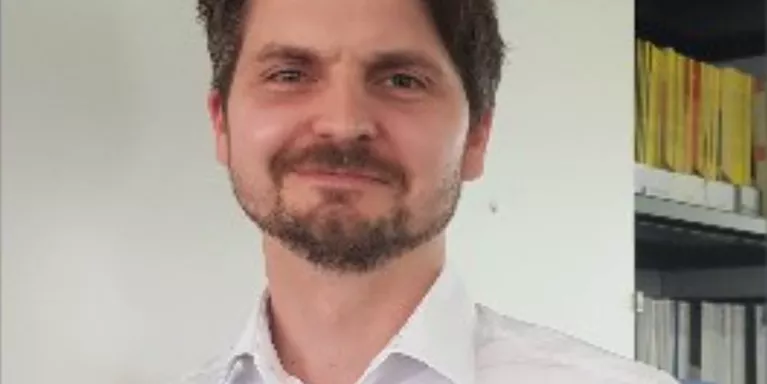My experience coming off medication
Andy talks about his experiences coming off Citalopram, and why he'd have liked more information and support.
Andy is a Vicar, Chaplain to Worcester Warriors Rugby Club and Elvis Presley Tribute Artist. He likes walking the dogs, gardening, and playing golf.
In 2004 I had a breakdown. I was a very busy vicar working in the middle of two large council estates, was a governor at various schools, and had a young family and a wife who had just recovered from depression, partly because of a very stressful job in Palliative Care as a Cancer Nurse Specialist.
I had been diagnosed with an underactive thyroid, irritable bowel syndrome and a hiatus hernia and life crashed. I was totally stressed, dealing with difficult problems and difficult people. As the above physical symptoms surfaced, so did the hidden depression.
"I felt like I couldn’t share how I felt with anyone except my spouse."
My depression goes back to my childhood and teenage years. My parents divorced when I was very young and I never knew my father. My mother wasn’t maternal and packed me off to boarding school, which I hated. I was desperate for love and a father figure, and I was sexually abused. Although I eventually had counselling, I found that nothing could shift the depression.
Added to all of this was the burden of – as a vicar – being someone that people put on a pedestal. I felt like I couldn’t share how I felt with anyone except my spouse, who, in my case, did understand only too well. Over the years I have also been able to confide in my golfing buddy whose wife has had episodes of serious anxiety and depression.
After my breakdown I was put on Citalopram and was off work for three months. I probably should have been of work for longer, but I dragged myself back and continued to take my medication. I struggled on over the years, but in 2009 I was forced to take early retirement. We moved house and I continued my part-time role as Chaplain to Worcester Warriors Rugby Club, but life was an effort.
"What I really needed was a doctor to look at my history and help me through a gradual withdrawal."
In 2011 I found a new lease of life as I began an Elvis Presley Tribute Act, but I was still on Citalopram and wanted to come off it. What I really needed was a doctor to look at my history and help me through a gradual withdrawal.
This summer, after fifteen years on Citalopram, I went back to the doctor. They told me to come off Citalopram, which they felt was no longer right for me, and to start taking a low dose of Sertraline. Sertraline was not right for me either, so after a few weeks I returned and said I wanted to come off everything. The doctor was very kind, but didn’t seem to understand this area. She agreed but said that if I couldn’t cope to try Duloxetine. When I asked what the side effects were they were exactly the same symptoms I was already experiencing, so I decided not to take it and start the process of coming off my medication altogether.
What no one told me was what happens when you come off Citalopram after so many years. I experienced a number of symptoms during the weeks I was coming off it, including:
- brain zaps (electric shock-type feelings in the head)
- headaches
- irritability and mood swings
- fatigue
- suicidal thoughts
- dizziness and blurred eyesight
- depression and anxiety
- sleep changes and strange dreams
- memory problems.
I found these side effects horrendous. My doctor told me that that they would pass in a few weeks, but for me they lasted much longer, and I am still getting some of them now.
However, I am finding ways to survive this process of withdrawal. It’s difficult to want to do anything, but I am forcing myself to do the following:
- Take regular exercise. I walk the dogs, swim, play golf and do gardening.
- Eat healthily.
- Get enough sleep.
- Take the right vitamins.
- Find forums that make me realise I am not alone.
- Pray, hard as that has been at times.
One of the hardest things over the years has been the feeling that I failed by having to be on Citalopram. I battled depression for years before going onto Citalopram and in those days very little was understood about it.
Unless they’ve had depression, people just don’t understand, so it can be a lonely walk. Recently the Worcester News did a front page article on my story and many of the comments online were completely insensitive and hurtful.
"I would’ve liked more information and support when I did make the decision to come off my medication."
I think medication along with good counselling and other support can be good to get a person up and running, but for me, I believe I was taking medication for too long when it wasn’t right for me. I also would’ve liked more information and support when I did make the decision to come off my medication, especially about the side effects of withdrawal.
I decided to share my story partly because I am still going through the effects of coming off my medication. There’s not much light yet, but I believe that eventually there will be.


Information and support
When you’re living with a mental health problem, or supporting someone who is, having access to the right information - about a condition, treatment options, or practical issues - is vital. Visit our information pages to find out more.
Share your story with others
Blogs and stories can show that people with mental health problems are cared about, understood and listened to. We can use it to challenge the status quo and change attitudes.

















